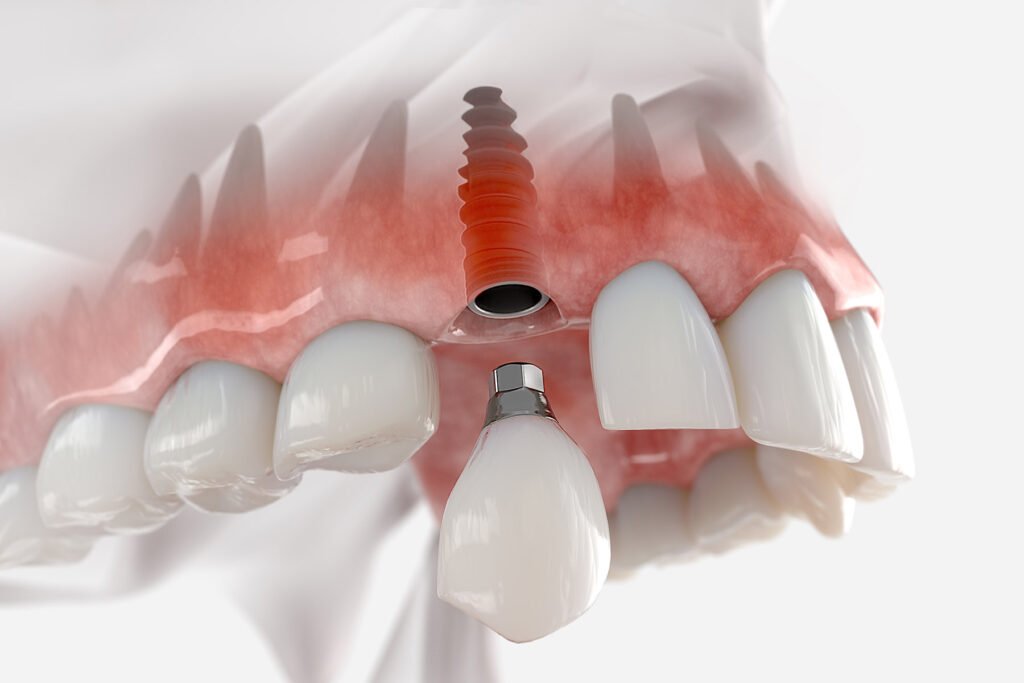
Implants are artificial tooth roots made of titanium, which are placed in place of lost or congenitally missing teeth, and do not cause any harm to the body. With fixed or semi-fixed prostheses placed on these artificial tooth roots; It is aimed to increase patient comfort. Implant applications, which are easily performed under local anesthesia, are durable, comfortable and reliable. Implants are intended to function smoothly in the mouth for a lifetime. Since implants have special surfaces, they adhere to the bone mechanically and cellularly on the way to integration into the bone. The ideal method is to wait 3-6 months for the connection to form. This period has been shortened with new implant surfaces produced in recent years.
Implant is a form of treatment that provides exceptionally successful results for the physician and the patient. It is much safer, more comfortable and functional than traditional crown, bridge and palate prostheses.
Implant or dentures made on implants replace real teeth and give the appearance closest to the most natural structure. During the process of replacing missing teeth, healthy teeth are left untouched. The implant is long-lasting compared to other fixed or removable prostheses; As a special application that replaces natural teeth, it offers the healthiest solution to the problems caused by tooth loss.
What are the advantages of implants?
- Removal of all kinds of total and partial edentulism
- Opportunity for fixed prostheses instead of removable prostheses
- Fulfillment of missing functions (chewing, laughing and phonation etc.)
- Repairing a single missing tooth without touching the adjacent healthy teeth
- Long life of an implant that has been successfully applied and used in accordance with hygiene criteria
Who is suitable for implants? What are the restrictions?
It can be applied to adults who have completed puberty, to those who have a suitable general health condition, to those who have diabetes under control even if they have it, and to those whose jaw bone structure is of appropriate quality and quantity, without an upper age restriction.
Individuals with a normal wound healing capacity, patients with the mentality to ensure proper oral hygiene, patients with a sufficient amount or a healthy bone structure that can be delivered to a sufficient amount can easily receive implant treatment.
Some other parameters, such as the patient’s teeth grinding habit and whether he or she smokes, should also be evaluated by your physician.
What does the success of the implant depend on?
- Selection of suitable cases. Bone thickness, height and quality in the area where the implant will be placed
- Proper oral hygiene
- Relationships of implant-supported dentures with opposing teeth
- Control sessions
- General health condition of the patient
Implants are made of materials called titanium, which have proven biological compatibility with tissue. Since titanium is not a living substance, it does not cause a negative reaction as in heart and kidney transplants. Therefore, there is no “tissue rejection”. The operation can be easily performed with local anesthesia without any pain. At the end of the operation, there may be a slight pain or swelling that can be felt after any tooth extraction. These can also be relieved with painkillers.